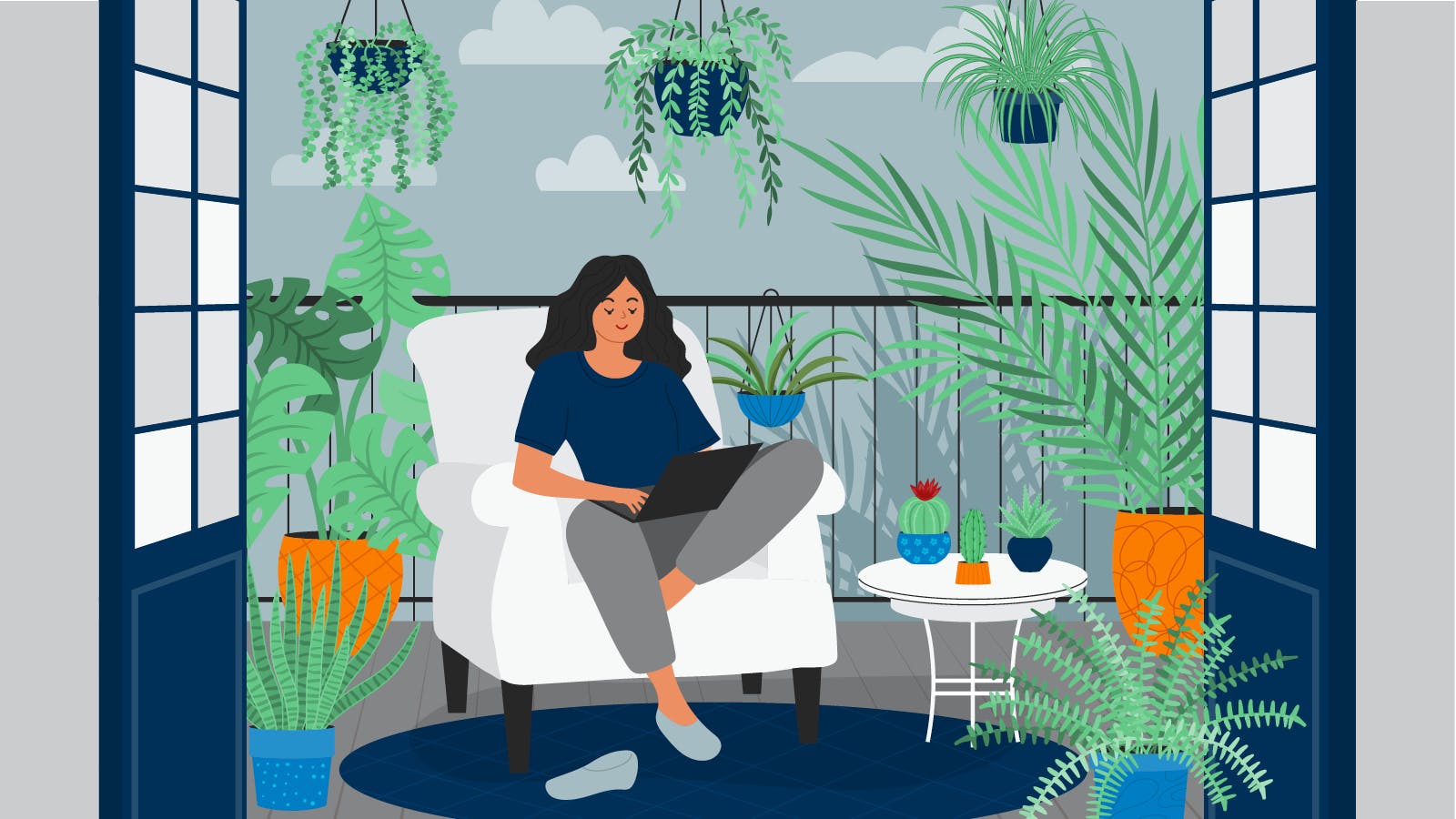

It seems like some people are simply born with a green thumb. The rest of us, though? We might need a little more help.
If you consider yourself a black thumb (a graveyard of dead houseplants is a good giveaway), don’t worry. You’re in good company.
According to a 2022 YouGov poll, a sizable 24% of Americans report that they would kill a new houseplant before the six-month mark.
But the many benefits of healthy houseplants are undeniable. Not only do they add life and color to an interior, but they can also improve air quality, sharpen focus, and reduce stress.
That’s why it might just be time to study up and make the switch from black thumb to card-carrying green thumb. In other words, nurture houseplants that thrive.
Luckily, there are just a few key factors—informed by science—that you’ll need to keep in mind. Let’s explore some of the top tips and tricks:
When plants don’t have enough space to grow and thrive, they become “root-bound .” This is when the plant’s roots begin to tangle and mat. It can seriously stunt your plant’s growth and eventually sap its overall health.
Do any of your plants seem a little claustrophobic? Some tell-tale signs are roots growing out of the pot, slower growth, and top-heaviness. If so, it may be time to re-pot.
Lucky for black thumbs, the guidelines are pretty simple. For smaller plants (in pots less than 10” in diameter), the new pot should be 1-2” larger. For larger plants (in pots greater than 10” in diameter), the new pot should be 2-3” larger.
If you use a solid-bottomed pot, water can quickly collect in the soil. This makes it really easy to overwater your plants, which is a classic black thumb mistake. While it may seem like your plants can’t possibly have too much of a good thing, the excess moisture can lead to root rot or fungus, stressing or even killing your plants over time.
Pots and planters should all have drainage holes for excess water to escape. You’ll also want a plant saucer to place underneath, to catch the draining water. This will help protect your floors, shelves, or windowsills from plant-related water damage.
Without the perfect amount of sunlight, houseplants won’t last long.
But remember: “the perfect amount” will depend on the size, type, and age of each plant!
It’s always a good idea to research how much light each of your plants needs specifically (that’s especially true if you’ve had black thumb tendencies in the past) but you can use these questions as a general guide:

In the same vein, make sure you’re watering your plants correctly.
This is another good opportunity to do some research on each individual plant.
When in doubt, though, you can simply check the soil. Poke your fingers into the soil, an inch or two deep. If you can’t feel any moisture, it’s time to water.
You should always use warm water to avoid shocking the plant’s system and aim the stream at the base, where the stem meets the soil. Add a little bit at a time, until water pools in the plant saucer. The goal is to mimic just what the plant would get in nature: A nice, refreshing rainstorm.
Even the healthiest houseplant can come down with something. That’s why you’ll always need to pay careful attention to your plants, note any changes, research symptoms, and respond as soon as possible.
Your plant might be in trouble if you notice any of the following red flags:
If you notice the above or additional issues, start with a quick internet search. There are also handy house plant identification apps that can help even the most clueless black thumb diagnose a plant and create a treatment plan in just a few seconds. When in doubt, houseplant pros, like those at a plant nursery, may also be able to help.
Keeping houseplants alive isn’t always easy. That’s why so many Americans identify as “black thumbs.” But, if you’ve laid more than your fair share of leafy, green friends to rest, it might just be time for a different approach.
Simply take a note from science and re-pot whenever needed, prioritize drainage, get your plants plenty of light and water, and play doctor if they eventually fall under the weather.
Then, we have all the faith in the world that you’ll be a card-carrying green thumb before you know it!